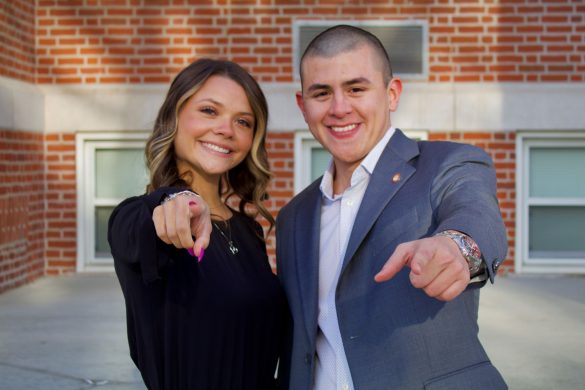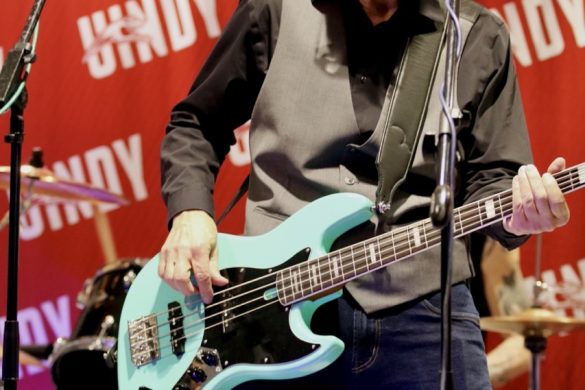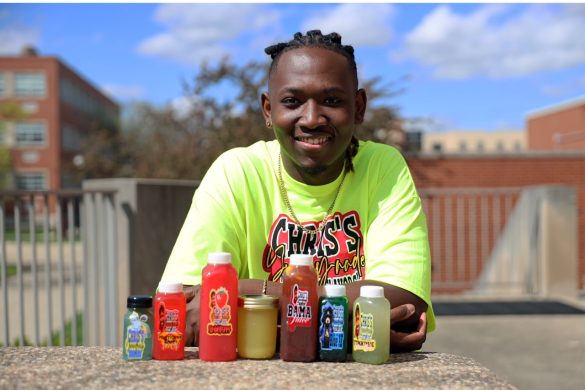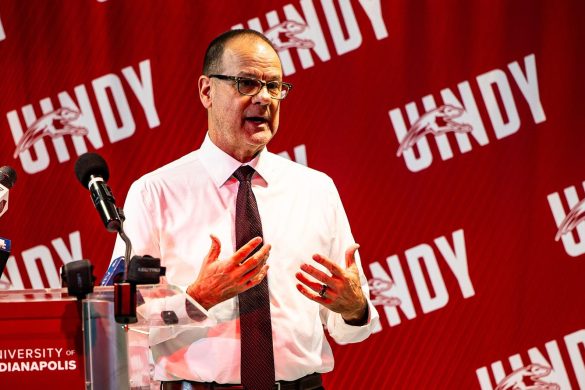
Howard works with students during a theological discussion on Thursday, Oct. 27, in Schwitzer 005. Photo by Andy Carr
The Lantz Center at the University of Indianapolis recently received a grant from the Lilly Endowment that allowed for the expansion of the Student Leadership Academy and creation of the assistant director position in the Lantz Center. According to Rev. Corey Howard, who has taken the new position, he hopes to further develop the Student Leadership Academy weekend in November along with creating a new two-week long program for the SLA in the summer.
According to Director of the Lantz Center Rev. Jeremiah Gibbs, Howard will not only play a role in the SLA program, but also in regular faith-life on campus.
“That will be 70 percent of his work [for the SLA],” Gibbs said. “He also has a portion of his job which will allow him to be in ministry with our students, whether that’s preaching in chapel, counseling students or all kinds of different roles that pop up in campus ministry.”
Howard has worked with students ranging from middle school to college-aged, but has never had an official position at a university until now.
“I’ve done some campus ministry,” he said. “It was in Terre Haute. There was a group of churches that kind of pooled their resources together to do an ecumenical campus ministry for the main three universities in Terre Haute. There’s ISU [Indiana State University], Rose-Hulman [Institute of Technology] and Saint Mary-of-the-Woods [College]. So this is technically my first appointment through a university, but I have been around college students for around 10 years or more.”
Gibbs said Howard’s experience in working with the Lantz Center in previous years and his knowledge of the SLA program gave him an edge when applying for the position.
“He [Howard] was part of the committee that was helping lead those programs [the SLA] seven years ago, so he’s been involved with that for some time now,” Gibbs said. “Also, he has a background in grant administration with a local community foundation, so he gets the heavy administrative work that is often involved with the grant programs.”
Along with helping students find their calling within the Christian faith, Gibbs wants his and Howard’s work with the SLA to serve as an opportunity to recruit new students of faith to UIndy.
“Part of our hope is that we would be able to help some students discover their calling to some of those fields [ministry and missionary work],” Gibbs said. “Another hope that we certainly have is that some of these students who come and get involved with these programs [in the SLA] would come and be students here. We hope that this serves as kind of a recruiting arm, and it will serve as an arm into a specific population of Christian students.”
According to Howard, his position will allow for more focus and dedication to the SLA programs, along with helping recruit students for UIndy.
“Part of the benefit of this position is somebody is going to be singularly dedicated to expanding the program [the SLA],” he said, “whereas in the past, it’s all been done by volunteer work, with the exception of Jeremiah [Gibbs]. But he has a million other things going on. But I’ll be able to do some recruiting even. So next, I can go out to youth groups and churches to promote the program, almost like an admissions person would do.”
The topic of interfaith is important to Howard, who believes that UIndy does an excellent job of providing a welcoming environment to students of any, or no, faith.
“Especially in the world today, interfaith work is essential to understanding humanity,” Howard said. “People come from a variety of faiths, and non-religious people as well. We all live on this Earth together. I think we’re all better when we know and understand each other better. One of the things I think is great about UIndy is that there are opportunities and there are groups for different students of different faiths. There are even smaller communities within the overarching religious community, where people can feel like they have a home.”








